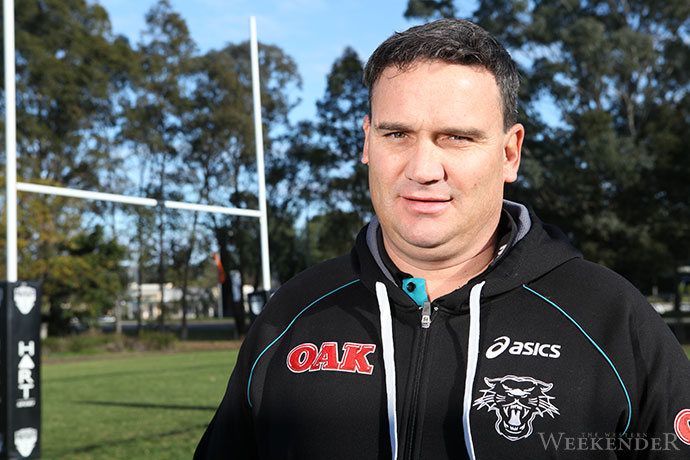Not many people know who this man is, in fact many Panthers staffers aren’t sure what he does on a daily basis, but once you find out his role he’ll change your perception on how a rugby league club works forever.
Former Panthers centre turned Indigenous Welfare Officer Glen Liddiard doesn’t have the usual 9-5 job, instead his role is so important and crucial to the Panthers club that he’s on-call 24/7.
Liddiard takes on many duties at Panthers including going out to schools to mentor young Indigenous kids, giving tours to country groups who visit Penrith Stadium as well as being a role model and mentor to the 16 Indigenous players who represent the Panthers from Harold Matthews right through to first grade.
“A lot of people here at Panthers don’t realise what I do… they don’t know I take players to doctors appointments, pick them up for training or help them out if they are in some sort of trouble at midnight,” Liddiard told Extra Time.
“It’s a 24/7 job but I love it because it builds a relationship with the players. The boys to me are like family members now.”
Liddiard has been in the role for two years and was recruited by Panthers boss Phil Gould to support the many Indigenous kids who leave their country towns all over Australia to play football at Penrith.
“I said to Gus when I first started that hopefully I can find him the next Johnathan Thurston or Greg Inglis, and he said: ‘Glen, all I want is for you to do is give these boys an education, show them work ethic and if they make the NRL from that then I’m happy’,” Liddiard recalled.
“I said: ‘Mate, that’s the best thing I’ve ever heard, it’s not all about football, it’s about improving lives’.”
According to Liddiard only one per cent of kids playing football make it and it’s the kids from the country towns that don’t make it who you have to watch out for.
“What’s happened in the past is these kids come down from the bush, nobody’s looking after them and if they haven’t made it they feel ashamed to go back home because before they left they thought they were going to be the next big NRL star,” he said.
“Sometimes if things don’t work out these kids go back home and end up drinking or taking drugs. They think their life is over because they never got to live out their dream.
“Now if we send them back and they haven’t made it at least they’ve got an education or a trade. They fit back into the community and haven’t been a failure. They’ve made something from the time they’ve had here.”
One of Liddiard’s most promising pupils is Panthers winger James Roberts.
Roberts’ troubled past is now very much well-known and since coming to the Panthers, Liddiard has been the man to see him through it.
“James is one of the lucky ones but the thing is there’s thousands of kids like James out there that just don’t have the support,” Liddiard said.
“When he scored a hat-trick against the Titans not long ago we just couldn’t believe it, it was like a dream come true for me. After hearing his story you want him to do well.”

